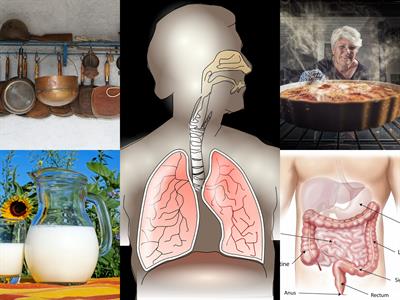
PUMPA - SMART LEARNING
எங்கள் ஆசிரியர்களுடன் 1-ஆன்-1 ஆலோசனை நேரத்தைப் பெறுங்கள். டாப்பர் ஆவதற்கு நாங்கள் பயிற்சி அளிப்போம்
Book Free DemoPreviously we have learnt about the various aspects of introductory chemistry. This chapter will help us to update our knowledge regarding chemical reactions, equations and their types, etc.
Before we begin the chapter, we must learn some fundamental concepts related to this topic which will help you improve your knowledge and comprehension. Here are some simple questions and answers to proceed further.
What is substance?
The combination of various elements produces substances.
What is reactant?
Participate substance(s) in a chemical reaction or (a substance(s) the left of the arrow in a chemical equation) is called reactant.
What is product?
Formed substance(s) in a chemical reaction or (a substance(s) the right of the arrow in a chemical equation) is called product.
A chemical reaction is a method that involves the conversion of one or more substances (reactants) into one or more new substances (products).
A + B → C + D.
Reactants → Products
When two or more substances combine to form a new substance, it is called a chemical reaction.
Chemical reactions are the interactions between chemicals that result in the formation of new compounds with different properties. In simple terms, a chemical reaction is a process of transforming reactants into products. How chemicals react is managed by the chemical properties of the element.
Consider the following scenarios from everyday life, and think about what happens when-
- During the summer, milk is kept at room temperature
- An iron tawa/pan/nail is left in a humid environment
- Cooking food
- Digestion of food
- The process of respiration

Chemical reactions in our day-to-day life
In all the above scenarios, the nature and the identity of the original substance have somewhat changed. We have already read about physical and chemical changes in a matter in our previous classes. Whenever a chemical change occurs, we can say that a chemical reaction has taken place.
You may perhaps be wondering what is meant by a chemical reaction. How do we come to know that a chemical reaction has taken place? We will be preforming few activities to find the answer to these questions.